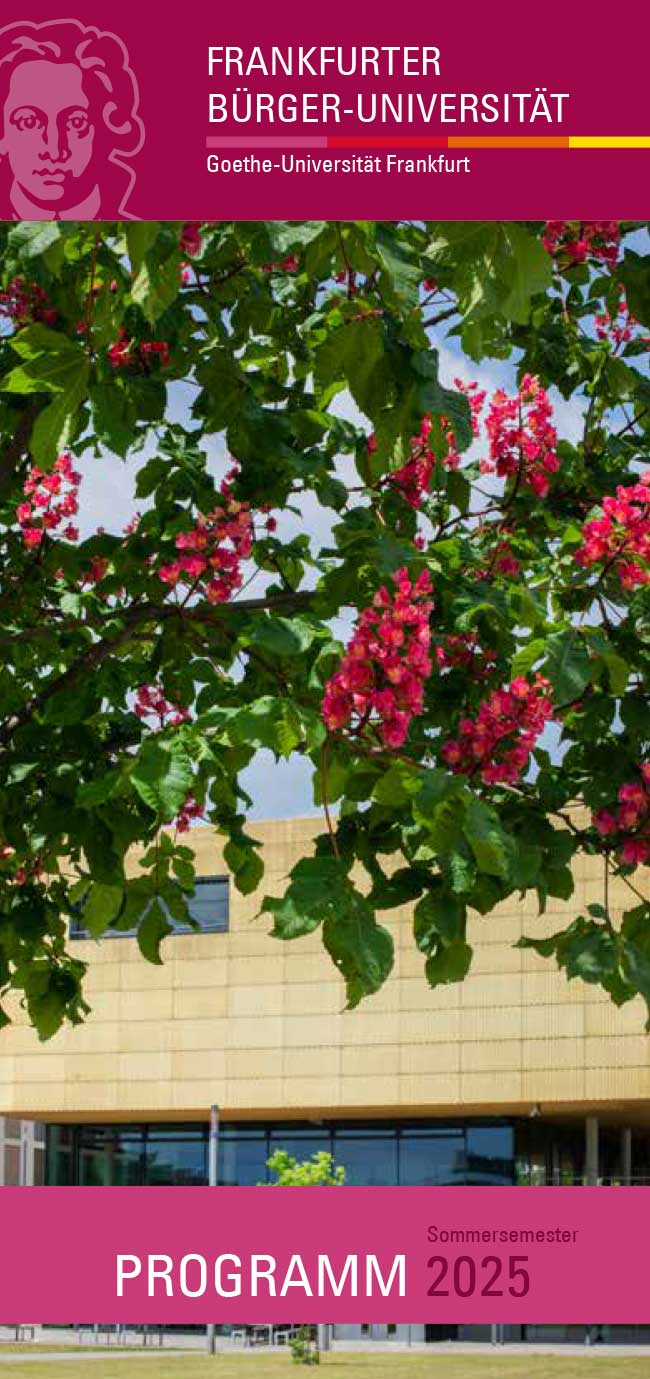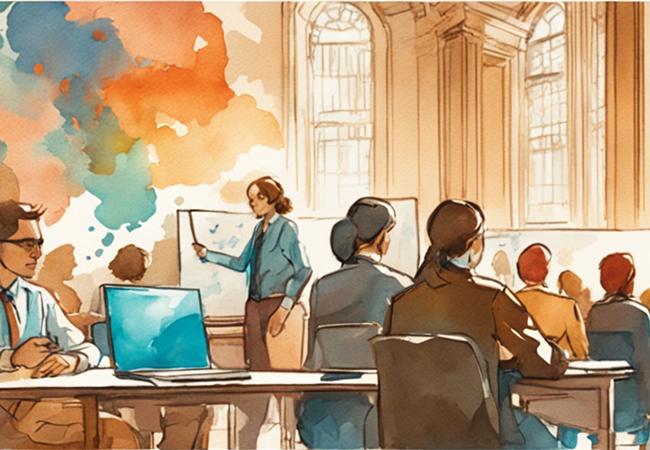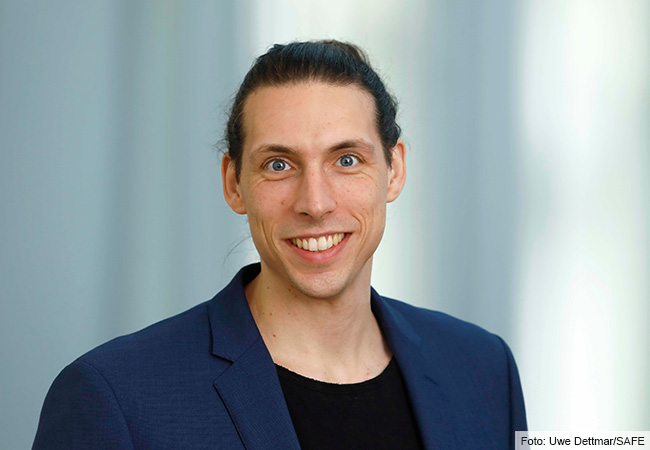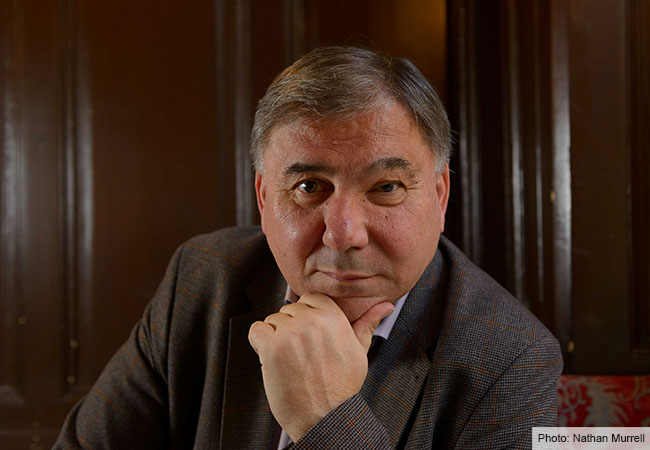One of the world’s largest nuclear magnetic resonance spectrometers was inaugurated at Goethe University Frankfurt on October 30, 2023. The ceremony was attended by Goethe University President Enrico Schleiff, Federal Minister of Education and Research Bettina Stark-Watzinger, Hesse’s Finance Minister Michael Boddenberg, State Secretary Ayse Asar of the Hessian Ministry of Higher Education, Research, Science and the Arts, and Thomas Platte, Director of Landesbetrieb Bau und Immobilien Hessen [Hesse State Agency for Construction and Real Estate]. A separate building wing was erected to house the spectrometer, which enables the high-precision analysis of biomolecules, for example in vaccine, cancer and Alzheimer’s research. The costs for the device and the building construction, totaling some €30 million, were borne by the Federal Republic, the state of Hesse and Goethe University.
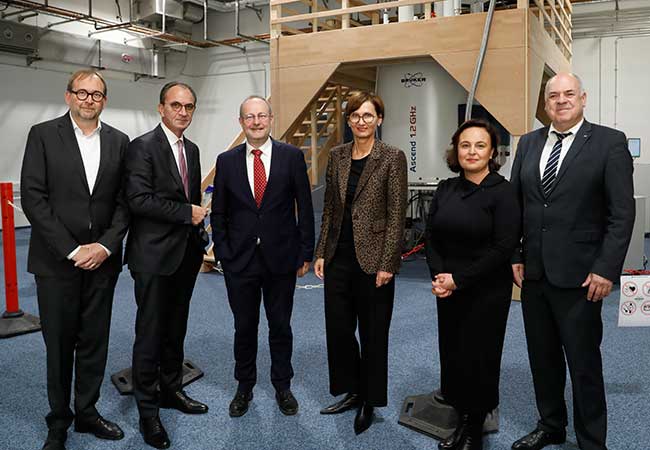
Tiny, fleeting changes in the spatial shape of biomolecules are increasingly attracting attention in biomolecular research, because such changes often determine how a protein functions in the cell, and how it is controlled. More than a third of the proteins in a human cell, for example, consists of such „intrinsically disordered proteins“, which contain very flexible regions instead of a fixed spatial structure. Defects in these flexible protein regions can cause not only various neurodegenerative conditions, including Alzheimer’s disease, but also cancer and cardiovascular disease.
Goethe University Frankfurt’s new 1.2 gigahertz nuclear magnetic resonance (NMR) spectrometer makes it possible to study such tiny changes in biomolecules. Using new developments in superconductivity, among others, the device generates an extremely homogeneous magnetic field in a small examination chamber that is 600,000 times stronger than the Earth’s magnetic field.
Bettina Stark-Watzinger, German Minister of Education and Research, said during the inauguration ceremony: „Top-level research in Germany requires attractive and competitive framework conditions, including an outstanding infrastructure that paves the way for new methods and technologies and strengthens Germany’s university system. That is why the Federal Ministry of Education and Research contributed more than €12 million to help fund this new research building for one of the world’s largest nuclear magnetic resonance spectrometers. This latest-generation, high-resolution NMR spectrometer provides Goethe University Frankfurt with a state-of-the-art research facility that offers ideal conditions to further advance basic research and thus set new standards.“
Goethe University President Prof. Enrico Schleiff said: „We at Goethe University are pleased and proud to be given the opportunity to conduct cutting-edge research using such unique infrastructure. The enormously broad application range of NMR spectrometry makes it possible to generate molecular movies of dynamic processes within cells that remain invisible when applying other techniques. In particular, I would like to thank Prof. Harald Schwalbe and his colleagues as well as the international partners whose unique research justify this facility’s installation. In the past two years, their studies of the SARS-CoV-2 virus have already impressively demonstrated the great potential of NMR technology, in vaccine development especially.“
Michael Boddenberg, Hesse’s Minister of Finance, said, „The research building that has now been completed acts as a powerful impetus that underscores the quality of Goethe University’s research. Another important building block has been added to Riedberg campus, which was developed and continuously expanded as a hub for research and teaching in the natural sciences.“
„The Highest Field NMR Spectroscopy research building is a testimony to the high quality of cutting-edge research in Hesse and at Goethe University Frankfurt – as evidenced by the funding recommendation from the German Science and Humanities Council [Wissenschaftsrat] and the Joint Science Conference [Gemeinsame Wissenschaftskonferenz – GWK],“ said Ayse Asar, State Secretary at the Hessian Ministry of Higher Education, Research, Science and the Arts. „This unique cutting-edge device will allow us to gain completely new insights into the structure and movement of biomolecules, which will in turn serve as the basis for further research into diseases such as cancer and Alzheimer’s. The new building and its high-tech equipment also complement the research power of Riedberg campus, which has been developed into a powerful hub in the Rhine-Main knowledge region in recent years.“
Thomas Platte, Director of Landesbetrieb Bau und Immobilien Hessen [Hesse State Agency for Construction and Real Estate], emphasized: „This is a case where the building constructed by our specialists primarily serves as the shell for its highly specialized inner workings. The focus lies on the high-tech equipment. At the same time, it is clear that any such facility requires a very special structural envelope. Since the spectrometer’s magnetic technology is highly sensitive to interference from metals, the building shell is made of fiberglass-reinforced concrete. This shielding, which has also been installed in the floor, protects the device from unwanted influences.“



